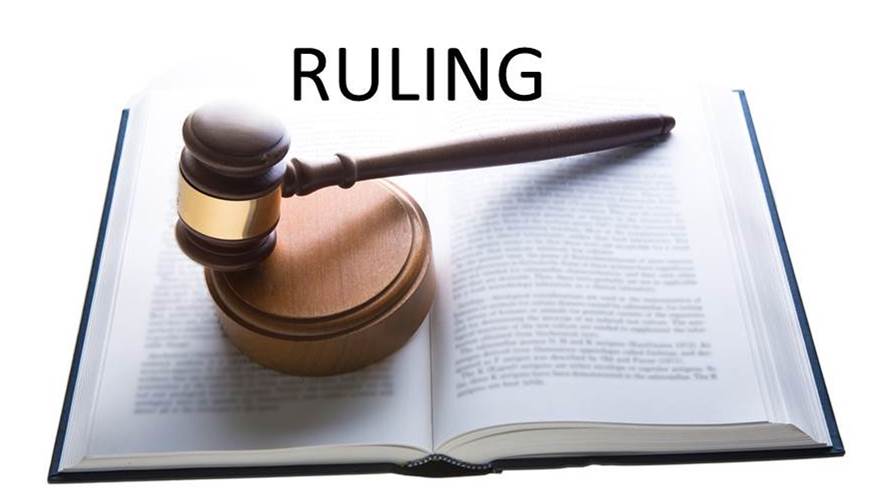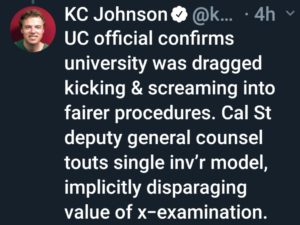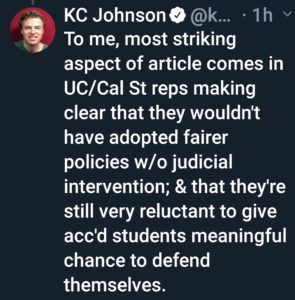8th CIRCUIT Warns Colleges They Can be Sued if They Deny Accused Students Due Process
A common practice in campus sex misconduct proceedings is to treat accused students as if they were guilty from the start. This can include making them change dorms, drop classes or even leave campus to keep them away from their accusers – all before the university has even reviewed the evidence against them, much less found them responsible. Iowa State University refused to take this guilty-until-proven-innocent approach when Melissa Maher accused Patrick Whetstone of sexual assault five years ago. Though it imposed a no-contact order between the parties, it refused Maher’s demand to move Whetstone to a dorm further from hers. Instead it offered Maher “at least two alternative housing arrangements,” both of which she declined.
”Does that refusal to judge first and ask questions later count as deliberate indifference? A trial court rejected Maher’s argument, and last week the 8th U.S. Circuit Court of Appeals upheld that ruling dismissing the lawsuit against ISU. Under the court’s own precedent, Maher had to show that ISU was “deliberately indifferent … to known acts of discrimination … which occurr[ed] under its control.” Rather, all she argued was that she didn’t like the alternative housing options it offered her. By her own argument, the appeals court said, Maher acknowledged that ISU was not deliberately indifferent until “it admitted” Whetstone was guilty – once its investigation was complete.
ISU acted appropriately “in light of the known circumstances” by respecting Whetstone’s procedural due process rights, according to the court. It could have exposed itself to “constitutional or statutory claims” had it imposed discipline on Whetstone – a forced room change – before concluding the proceeding. Universities are not granted license to treat all accused students as guilty simply because some will eventually be judged guilty. Even the Title IX consultant S. Daniel Carter acknowledges this, telling Inside Higher Ed that the 8th Circuit ruling matches Supreme Court precedent.
thecollegefix.com By Greg Piper















